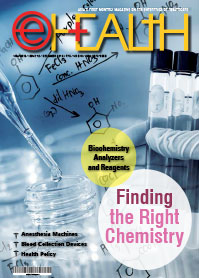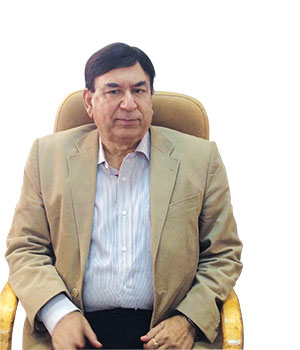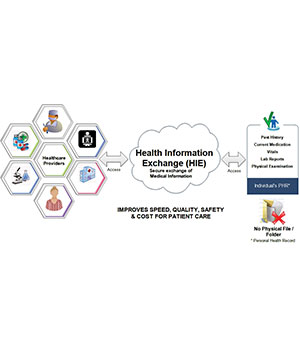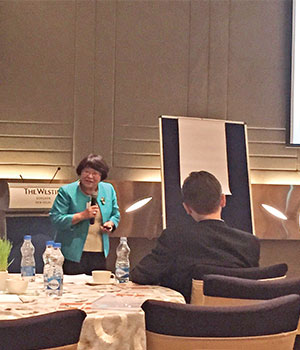
Recently, the CEOs of around 30 hospitals and JCI consultants attended the workshop held in Gurgaon, which started with a brief overview of JCI and its goals in the near future.
 Elsevier and Joint Commission International (JCI) conducted a Hospital utive Education Program that mainly focused on topics such as building a high reliability organization and evidence-based practices, which are of high relevance to most hospital utives today. The Elsevier-JCI workshop was held at Westin hotel in Gurgaon on November 19th. Around 30 hospital CEOs and other JCI consultants attended this workshop, which started with an overview of JCI and its goals in near future..
Elsevier and Joint Commission International (JCI) conducted a Hospital utive Education Program that mainly focused on topics such as building a high reliability organization and evidence-based practices, which are of high relevance to most hospital utives today. The Elsevier-JCI workshop was held at Westin hotel in Gurgaon on November 19th. Around 30 hospital CEOs and other JCI consultants attended this workshop, which started with an overview of JCI and its goals in near future..

The speaker at the workshop was Dr. Hyunok K. Do, RN, CRRN, DNSc, a JCI Consultant. Dr. Hyunok Do is a consultant for Joint Commission International with more than 30 years of leadership and management experience in operations. She is a recognized expert in performance improvement, outcomes management, program development, and statistical tools and techniques.
In the first half of the JCI workshop Hyunok focussed on the topic; High Reliability Organisation. This topic served many solutions for the issues faced by the hospitals. Most of the time, hospitals do most things right, but the constant failures in critical procedures have a terrible consequence for a patient. Then she talked about creating a culture and processes that radically reduce system failures and effectively respond when a setback occurs. According to the speaker, these aspects are the focus of high reliability thinking.
This program presented a high reliability concept and discussed the thoughts, achievements and failures of hospital leaders, who have used concepts of high reliability and aspire to help hospital leaders start the transformation of their organisation. This involves a system of secure, highquality, and efficient care being given to each and every patient at the hospital.

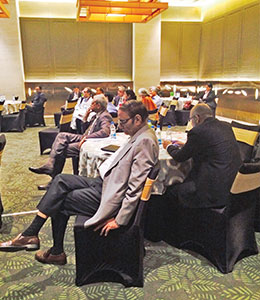 The main purpose of this topic covered was to define high reliability concepts and describe the importance of these concepts to various hospitals by identifying five characteristics of high reliability organisations. There was also a discussion about describing applications of high reliability concepts within health care organisations and the present challenges of implementing these concepts of high reliability organisation.
The main purpose of this topic covered was to define high reliability concepts and describe the importance of these concepts to various hospitals by identifying five characteristics of high reliability organisations. There was also a discussion about describing applications of high reliability concepts within health care organisations and the present challenges of implementing these concepts of high reliability organisation.
The second half of the workshop highlighted on Clinical Leadership and Evidence-Based Medicine. The main goal of this topic covered was to concentrate on Evidence-based practice (EBP) in hospitals. Today, EBP is receiving good attention within the field of healthcare services like medicine, nursing, psychiatry and also the social work. The goal was to step toward making sure each patient gets the best services available. Thereafter, the workshop highlighted how adopting and implementing evidence-based practices within a real healthcare organisation setting has been facing several obstacles.
The presentation provided a general overview of EBP and discussed the basic characteristics of EBP, implementation measures and existing challenges in disseminating as well as implementing EBPs in hospitals. The main purpose of this topic discussed was to showcase history and developments of evidence-based practice in healthcare services. Firstly, the workshop attempted to recognize effective measures for successful implementation of EBPs across hospitals and to describe application of EBP criteria for quality patient care services. Lastly, the workshop also highlighted the challenges of disseminating and implementing EBP and the roles of leadership in successful implementation of EBPs.
Be a part of Elets Collaborative Initiatives. Join Us for Upcoming Events and explore business opportunities. Like us on Facebook , connect with us on LinkedIn and follow us on Twitter , Instagram.


